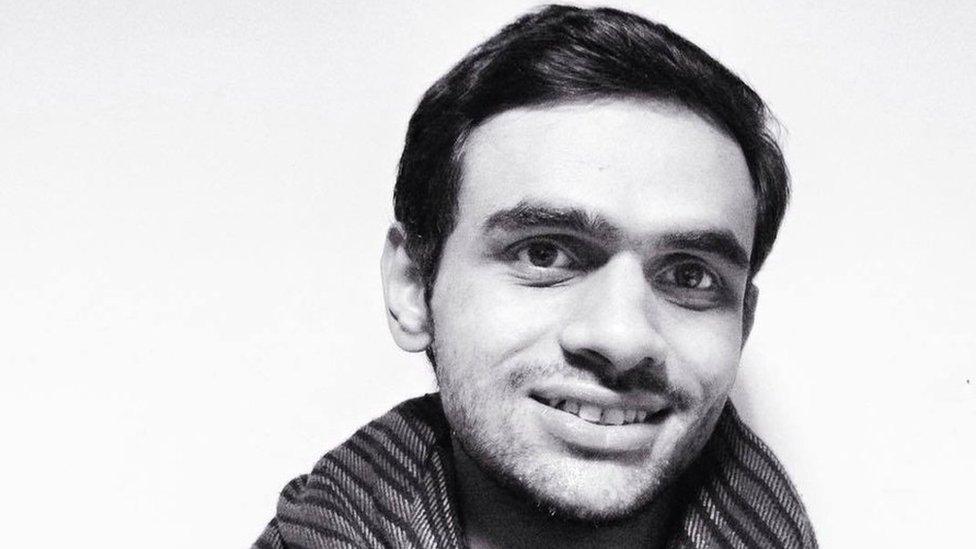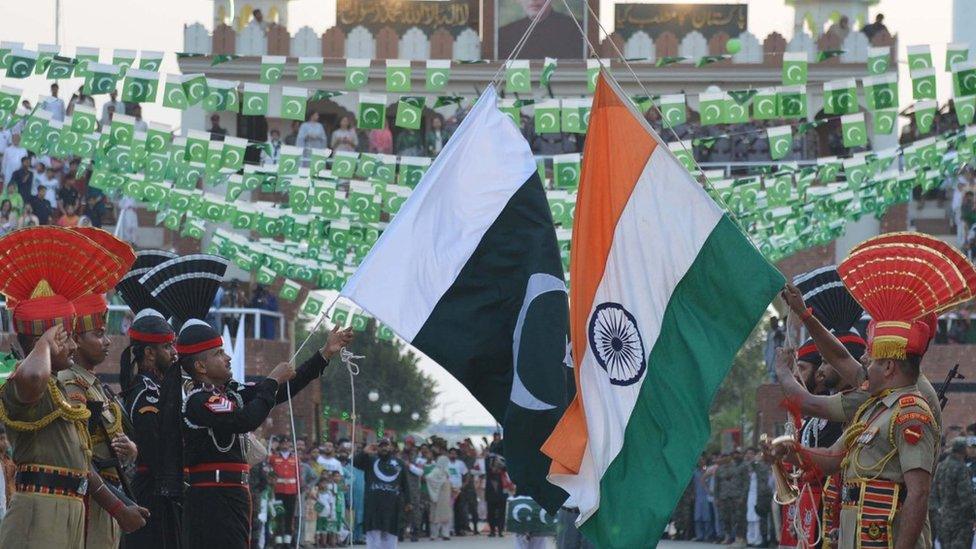Why a cricket match caused student unrest in Kashmir
- Published
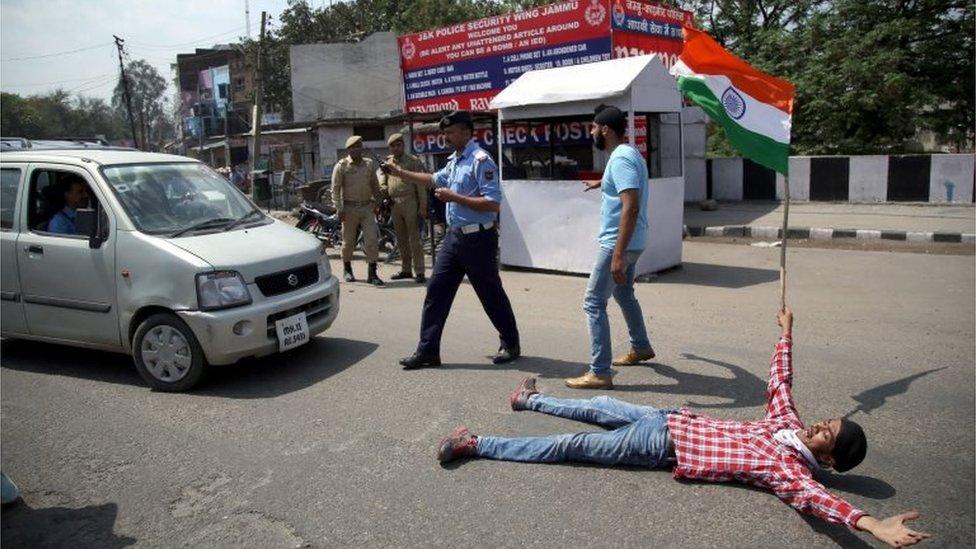
Tensions remain high at a university in Indian-administered Kashmir following a row sparked by a cricket match. Students and police clashed at the National Institute of Technology (NIT) in Srinagar city, with police using sticks to beat up students. Senior journalist Shujaat Bukhari explains the incident and what has happened so far.
Who are the NIT students?
NIT was founded as a regional engineering college in 1960 and was under the control of the Kashmiri state government until 2004 when it was renamed and taken over by the federal government's ministry of human resource development (HRD).
This meant that admission to the college began to be based on a national examination, open to students from across India.
This has gradually changed the composition of students in the institute.
At present, 50% of the university seats are reserved for students from outside the state of Jammu and Kashmir. The other 50% is divided between students from the Muslim-majority Kashmir valley, the Hindu-majority Jammu and Buddhist-dominated Ladakh regions.
Nearly 3,000 students currently study on the campus.
How did the trouble start?
The crisis began during India's World Twenty20 semi-final clash against the West Indies last week.
Reports said that local Kashmiri students supported the West Indies, while all the others cheered for the home team.
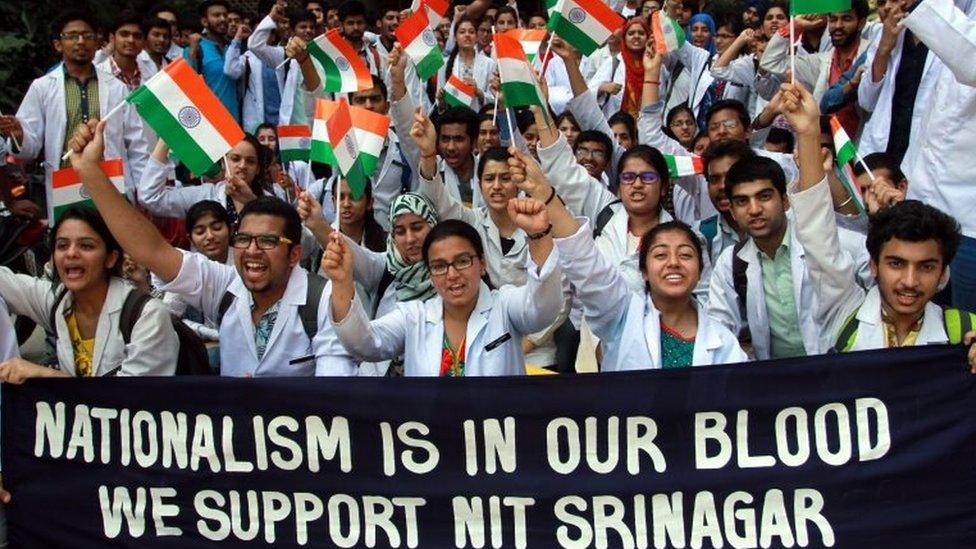
What began as slogan-shouting soon turned violent and clashes broke out.
A few Kashmiri students told local media that they had been "thrashed" in the incident. This led to anger within the Kashmir Valley, made worse by a report by a courier boy named Imtiyaz Sheikh, who complained that "outsider" students beat him up when he went to deliver a package at the campus.
Clashes broke out again when non-Kashmiri students chanted "Bharat Mata Ki Jai" (Victory for mother India) and attempted to hoist the Indian flag at the university.
Police intervened and allegedly "seized" the flag and attempted to restore order.
India is currently witnessing a heated debate over the phrase because some Muslims say the line equates the country to a mother "deity" and worshipping any god, apart from Allah, is un-Islamic.
A Muslim legislator in the western Indian state of Maharashtra was recently suspended after he refused to say it.
So why are they protesting now?
The non-Kashmiri students allege that they are now being harassed by the faculty, most of whom are locals. They said they tried to hold a protest march outside the campus, but were stopped by the police.
Clashes broke out between the two sides and led to police baton-charging the protesting students.
Why was a cricket match the trigger?
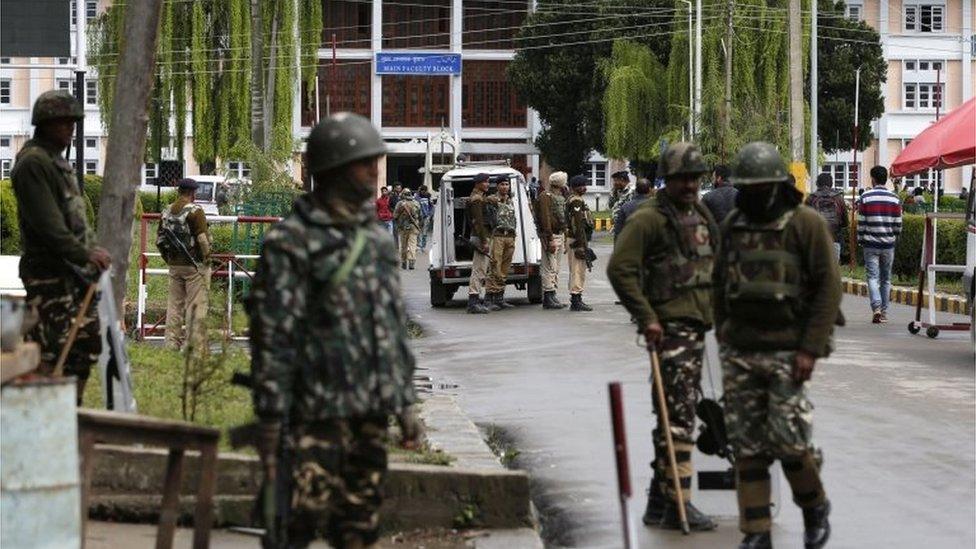
Tensions have been high inside the university ever since India lost to West Indies in the World T20 semi-final last week
Controversy over a cricket match in Kashmir is not new.
Many in the valley have regularly cheered for Pakistan. In fact, before the outbreak of militancy in the region in the late 1980s, residents would publicly cheer for teams like Australia and West Indies.
And now, with anti-India sentiment running high and with many Kashmiris feeling alienated, such outbursts are not unusual.
Why are there different versions of the incident?
Police and unofficial university sources have maintained that the violence was nothing more than a group of senior students trying to settle old scores.
But some students, who spoke to the BBC on condition of anonymity, said they felt threatened.
"We are not safe and we are too afraid to study. The faculty is not good to us and we are scared of the police," one of them said.
The local students allege that the entire incident is a ruse to shift the NIT out of Kashmir.
"We are a minority in the campus. What can we do? They now think that the Indian government is on their side and they can do anything," one of them told the BBC.
How have authorities reacted?
University authorities and state ministers have downplayed the issue and expressed the confidence that they would be able to resolve matters soon.
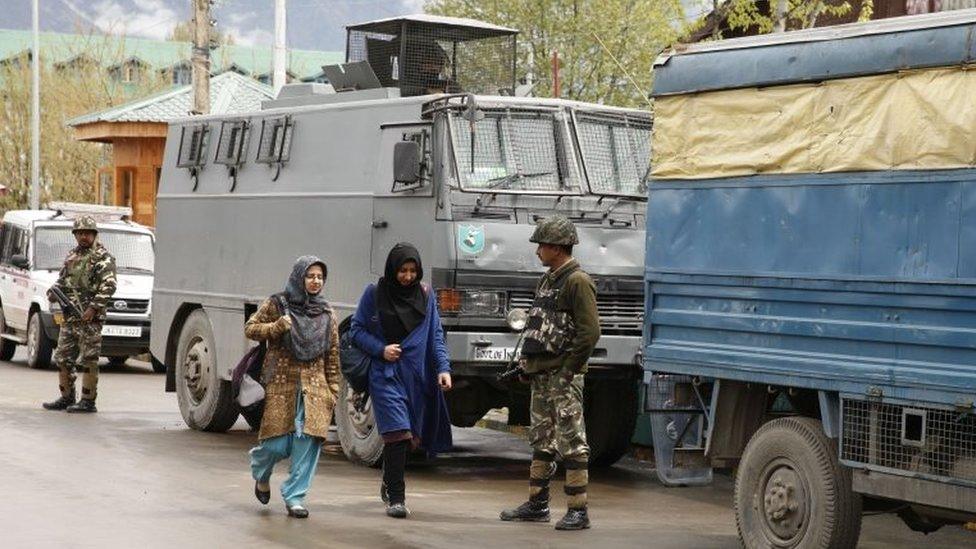
But the federal government has stepped in, sending paramilitary forces and a high-level team to negotiate with the protesting students, thereby minimising the role of the Kashmiri state government and the local police.
Apart from that, India's Home Minister Rajnath Singh and Human Resource Development Minister Smriti Irani spoke to Kashmir Chief Minister Mehbooba Mufti and asked her to ensure the safety of students from outside the state.
What are the implications of the incident?
NIT has now become the latest hotspot in the debate over "nationalism" in India.
What has happened in the college can be directly compared to recent incidents in Delhi's Jawaharlal Nehru University (JNU) and south India's Hyderabad university, where police action has been taken against students accused of being "anti-national".
However, the way in which the government rushed paramilitary forces into the university premises, sidelining the state authorities, has caused some concern, both about the future of the new government and the students of the college.
- Published4 March 2016
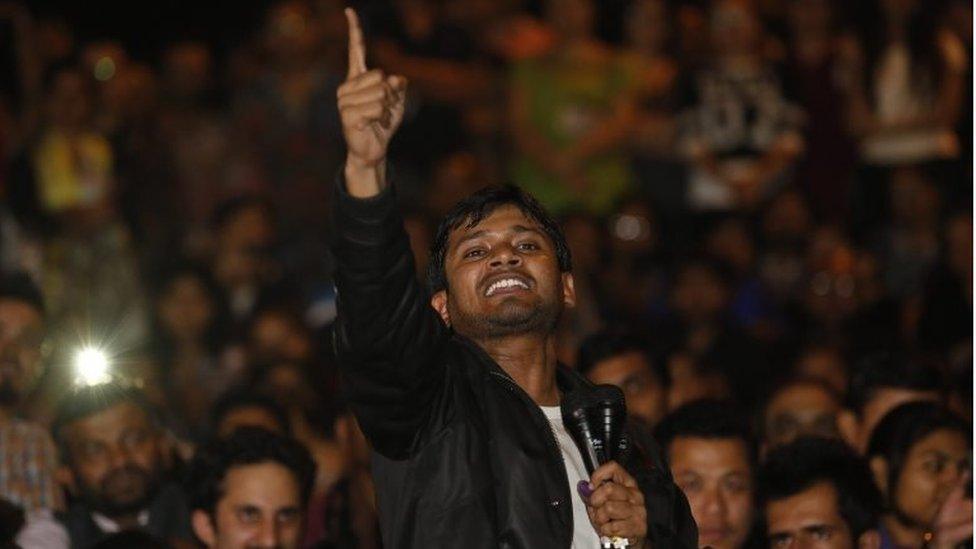
- Published24 February 2016
